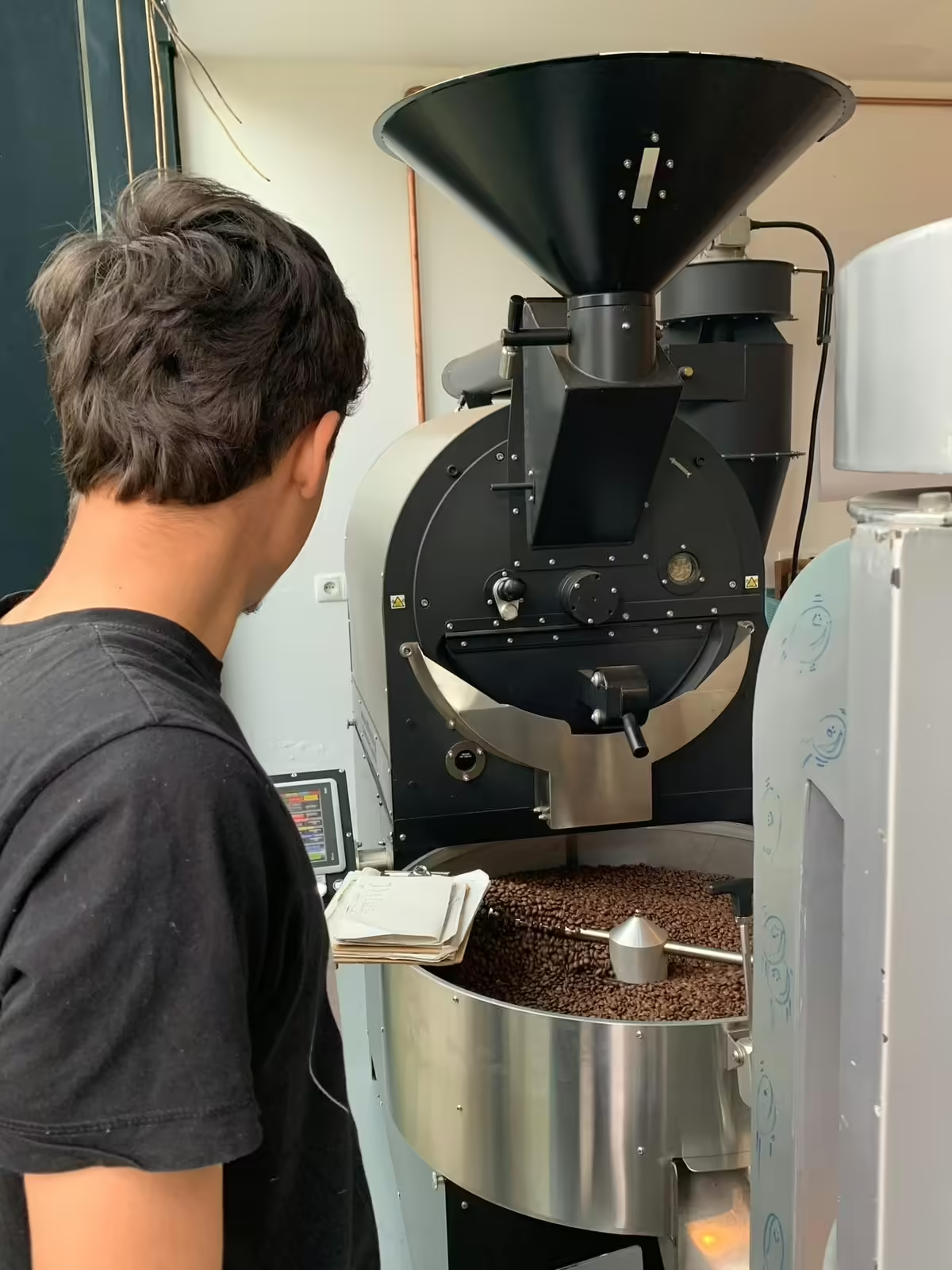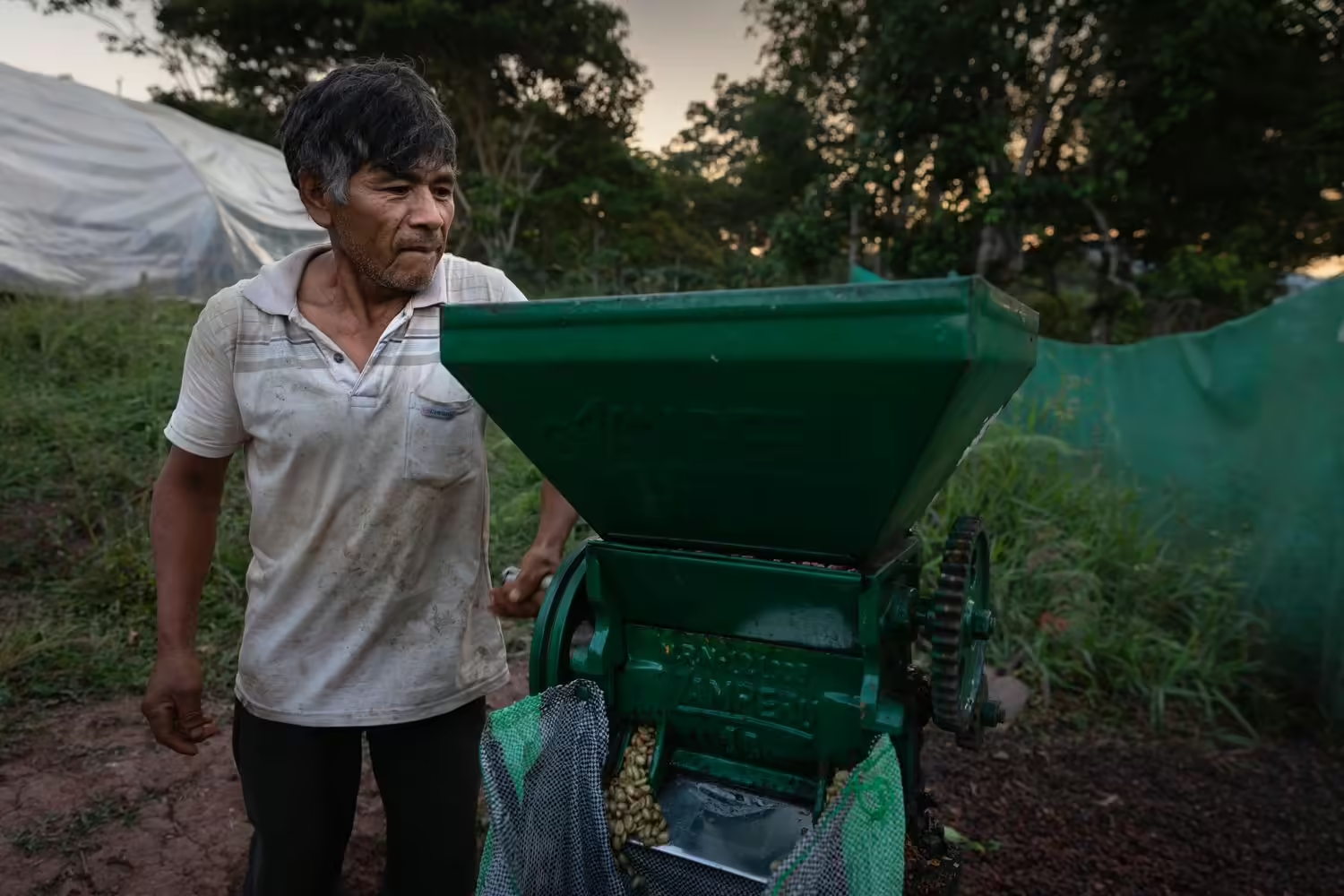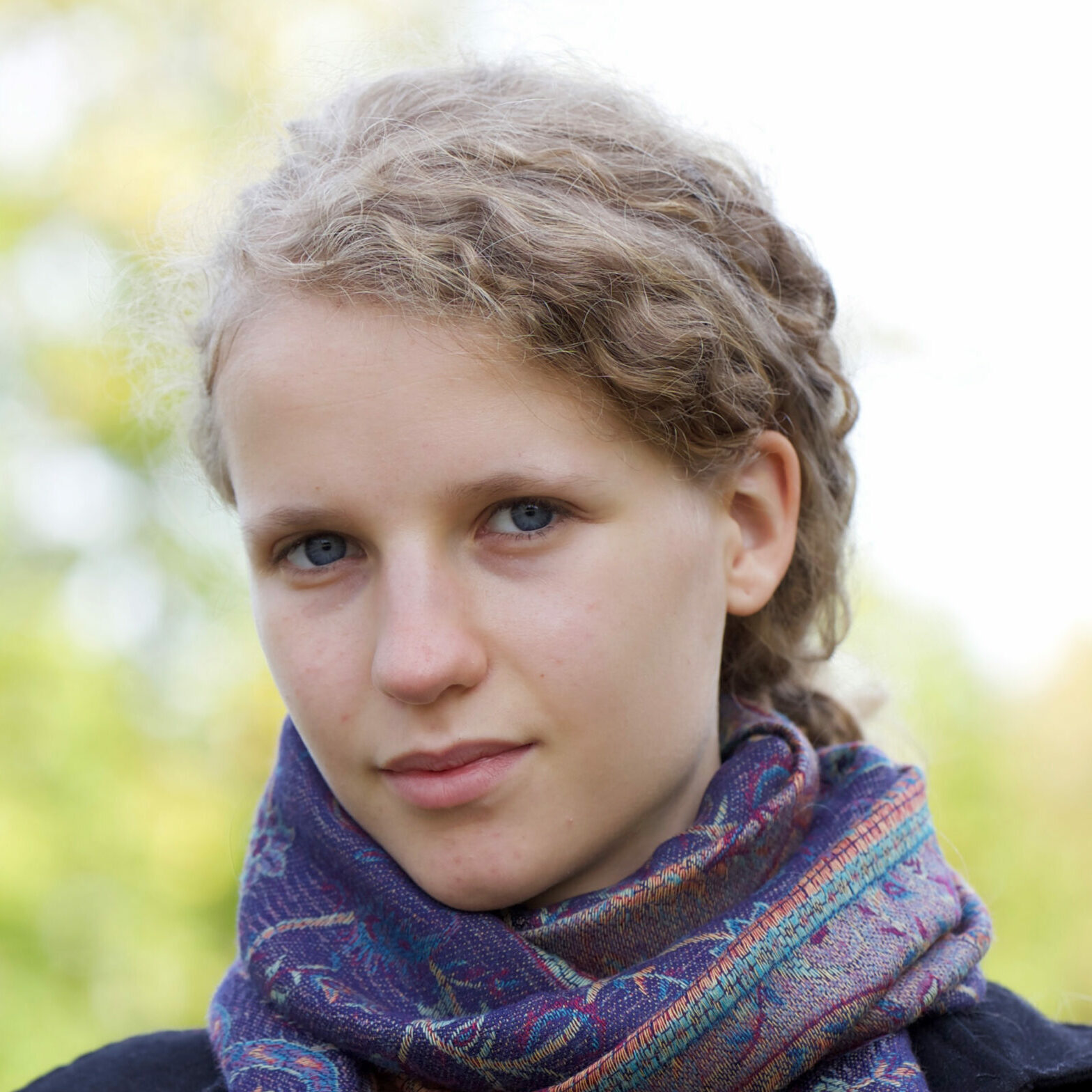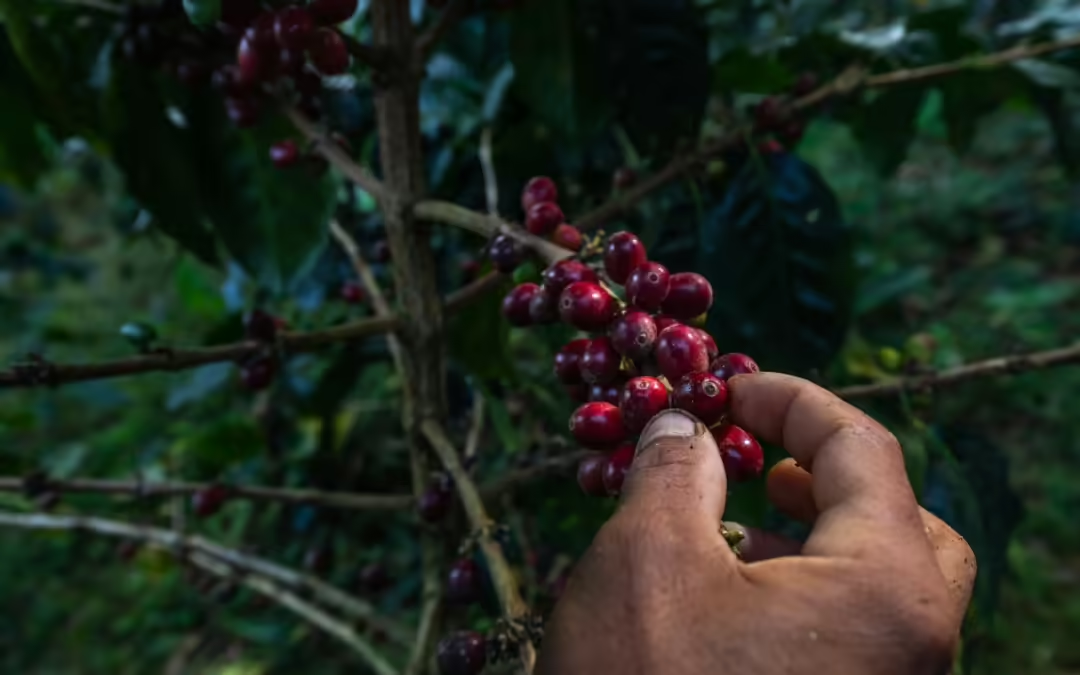Image: Diego Lopez (GIZ)
You are currently sitting at the hotel breakfast wondering where the coffee you are sipping comes from? Great question! We had the privilege to exchange with Eliah and get to know his project QoriCoffee inside out – including tasting the delicious bitter brown drink. Get excited and dive into the global entanglement of our daily caffeine source together with us. And at the end of the article: feel encouraged to connect to the hotel staff and ask where their coffee comes from.
Hi Elijah, you are involved with fair trade coffee. How much of it do you drink a day?
Moin, yes, just right. I have to say, I get to my 5-6 cups by the end of the day. 🙂
What is the name of your initiative and what exactly is it about?
The project is called QoriCoffee (which is Quechua, an indigenous language in Peru, and stands for “valuable”, “gold”, “high quality” and “noble”). QoriCoffee imports high-quality, 100% organically grown specialty coffee from Peru to Germany, refines it by roasting and then sells it.
What makes it special is not only the taste of the coffee, but also the close partnership with the cooperative in Peru, the local support, the fair payment and the direct trade relations.
First of all, I would like to say that we are not perfect either – in an ideal world, the entire added value of the product would be in the country where it is grown. This is the only way to work sustainably and independently in the long term. However, as long as the processing is carried out by us importers, there will always be a certain dependency.
You want to get in touch with Elijah, our interview guest? Do not hesitate and find the contact information right here:
Elijah Schön
015751959573
Instagram: @ Qoricoffee
Linkedin: @ Qoricoffee
mail: [email protected]

Image: Diego Lopez (GIZ)
In an ideal world, the entire added value of the product would be in the country where it is grown.
Are you a coffee roaster then? How did you come to work regularly in a roastery?
I would say, among other things, I am also a roaster. The story began in 2022, when I went to South America to explore my grandparents’ continent and ended up in the coffee fields of the Satinaki cooperative in central Peru.
For a year, I worked with the farmers, lived with them and got to know not only all the different steps involved in the craft of producing coffee (planting, fertilizing, tending, harvesting, processing, washing, roasting and quality analysis), but also all 60 small farmers of the cooperative personally.
This made me realize that the people who do 80% of the work only receive a fraction of the added value, even though they bear the full risk. We want to change that, and that’s why I founded QORI.
What is the current problem with standard coffee?
I’ll try to keep it short: The problem with conventional coffee is the cultivation methods, regardless of how it is traded. On conventional large-scale plantations, there is no protection for the workers against pesticides. The use of pesticides also has a serious impact on biodiversity, and the expansion of such plantations often leads to the destruction of large areas of primary rainforest – frequently through slash-and-burn. Small farmers have to form cooperatives because they cannot compete against the large landowners on their own. So why is this type of cultivation still practiced? – Because it is cheaper.
The costs of growing coffee organically and the associated crop losses due to plant diseases are not worth it for most farmers. Middlemen often earn more than the producers and make the entire export process non-transparent. This is exactly where we come in: We pay directly to the cooperative and a multiple of the market price, but also receive organic specialty coffee without pesticides as a result. Another point that comes up again and again is the lack of understanding of the conditions and circumstances on the ground. A good example of this is the EU deforestation law that has been passed. A good idea, but poorly implemented. Locally, there is often a lack of resources and knowledge for data collection and transportation.
How does your initiative contribute to improving social and environmental factors?
On the one hand, we support the cooperative directly through higher prices that are above the Fair Trade price. Indirectly, it is about a trading relationship at eye level between the global South and the global North. This relationship enables us to act as a “mouthpiece” to create a flow of information and convey an understanding of a problem that is also transferable to other sectors.
To take up the example of the EU law once again: In collaboration with our partner Knauer in Munich, we supported the cooperative in implementing data collection, develop an app and set up a data channel via satellite. This is a huge support for the cooperative to work more effectively and sustainably.

Image: Diego Lopez (GIZ)
Asking at the hotel about aspects such as where the coffee comes from can seem overwhelming. Eliah provides hints how you can find out more and why it is important to become a changemaker and make sure what you drink contributes to a more social and environmental friendly world:
“Often you don’t even have to ask, the branding on crockery and machines already gives a lot away. It is attractive for a hotel to purchase coffee from the major suppliers and in return have crockery and other accessories sponsored. The answer to “why” is often the price: “We can’t pay 30 euros per kilo of coffee.” My answer to this is clear: if the consumer doesn’t pay this price, the person who fertilizes, harvests and processes the coffee pays it.
A harvest worker on a large plantation in Peru earns 6 soles per harvest basket, which is around 1.50 euros. With 14 hours of work and often with the help of children, some people manage 15 baskets a day – that’s 22.50 euros. Deductions are made for uncollected coffee cherries, broken branches and meals. In the end, there is not much left over, but the coffee has to be on sale at the discount store for 9.99 euros per kilo, otherwise no one will buy it.”
What do you want from accommodations in terms of the coffee on offer?
For me, it’s almost a moral issue, and that applies not only to coffee, but to all products. I want organic items. Especially with coffee, the producers suffer extremely from the pesticides used, and the consumers also ingest this poison. Pay attention to the origin of the coffee. The FairTrade label is not enough, but it is a step in the right direction.
In general, I would like people to understand coffee as a product. Who knows that coffee grows like cherries in red fruits on the tree, who knows how it is processed or roasted, and who knows that coffee loses 80-85% of its weight from harvest to brewing? Or that we roasters have to pay 2.19 coffee tax per kilo of roasted coffee to customs because of the processing. I believe the product will be valued differently. The more knowledge there is about coffee, the greater the understanding of fair prices.
“The more knowledge there is about coffee, the greater the understanding of fair prices.”
What can individual travelers consider in order to be particularly sustainable in their consumer behavior when traveling?
I can only recommend finding out about such products when traveling. If you have seen a plantation that is run as a monoculture as far as the eye can see, without any signs of other life, you automatically question discount coffee.
If you talk to a child of a harvest worker who can’t go to school because he has to go to the coffee harvest with his father, you also question your purchasing decision.
When buying coffee, make sure that the roasting company produces transparency reports or at least provides certain data and information in accordance with THE PLEDGE. If it is not you who buys the coffee, since you are staying at a hotel, make sure to talk with the hotel staff. If every guest asks for more moral coffee, you can be certain that they will overthink where they get their coffee from!

Lilith Diringer
This interview has been conducted by Lilith. Our CEO is eager to learn everything about sustainable travel and share deep insights with you. Her vision is to make people as well as nature profit from travelling. She wishes you a great trip wherever the next booking takes you and is happy to share details and insights on request: [email protected]

